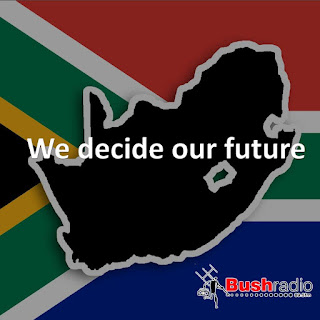President Cyril Ramaphosa acknowledged that South Africa still have a long way to go, when it comes to freedom. Ramphosa delivered the keynote address at the Freedom Day National Celebrations at the Union Buildings.
South Africans are also celebrating 30 years of democracy. The President said Government’s task over the past three decades has been to bridge the gap between wealth and opportunity in the country.
‘’We know that despite our achievements, South Africa remains
a highly unequal society. Our people confront every day the apartheid legacy of
unemployment, poverty and underdevelopment. Crime, especially crimes of
violence against women and children, are a scourge in our communities.
‘’Despite great progress, many households do not have
electricity or clean water. There are still many families that go hungry. There
is a huge divide between the rich and the poor. We see this divide in access to
health care, in access to safe transport and proximity to services and work
opportunities.’’
‘’At times, it seems that these challenges threaten to
undermine the achievements we have made over the past thirty years. And yet we
know that if we work together, if we harness the same spirit of unity that we
did in 1994, we will surely overcome them.’’
History shows us that by working together in pursuit of a
common goal, we will succeed. Our journey since 1994 has proved that we are a
nation of optimism, resilience and hope.
We believe in a better tomorrow and it is within our hands to shape our
collective destiny. It is within our
hands to rebuild South Africa and make it a place of equal opportunity and
shared prosperity where no-one is left behind,’’ said Ramaphosa
Meanwhile, the Pan South African Language Board (PanSALB)
highlighted the importance of individuals being able to express themselves in
languages they understand.
“Today as we celebrate this remarkable milestone, it is
essential to recognize that for democracy to flourish, linguistic diversity
must be valued as a reliable guide towards the future. Engaging people in a
language they understand is critical for genuine participation in democracy,” said
Lance Schultz, PanSALB CEO.
He added that South Africa’s expansion from two official
languages during the apartheid era to 12 in the new dispensation is a
restatement to the great strides that have been made in safeguarding language
rights.
“There is no doubt that one of the key aspects of democracy
is engaging and communicating with people in languages that they understand and
for the past 30 years, the right to use one’s own language has been protected,” said Schultz.
Done by: Mitchum George

Comments